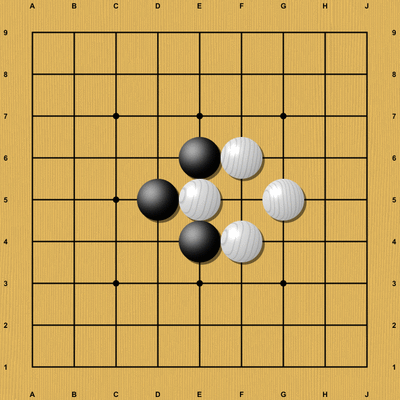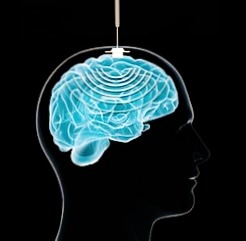I really enjoyed the Spike Jonze 2013 movie Her, in which the male protagonist, Theodore, falls in love with his AI operating system. He considers her - Samantha - to be his lover. It turns out that Samantha is promiscuous and actually has hundreds of simultaneous human lovers. She cheats on all of them. “I’ve never loved anyone the way I love you,” Theodore tells Samantha. “Me too,” she replies, “Now I know how.”
AI sentience has long been a part of science-fiction. It's not new to films either. Metropolis considered this back in 1927. The possibility of AI love for a human or human for an AI is newer. We never see Samantha, but in the 2014 film, Ex Machina, the AI has a body. Ava is introduced to a programmer, Caleb, who is invited by his boss to administer the Turing test to "her." How close is he to being human? Can she pass as a woman? She is an intelligent humanoid robot. She is a gynoid, a feminine humanoid robot, and they are emerging in real-life robot design.
As soon as the modern age of personal computers began in the 20th century, there were computer games. Many traditional board and card games such as checkers, chess, solitaire, and poker, became popular software. Windows included solitaire and other games as part of the package. But they were dumb, fixed games. you could get better at playing them, but their intelligence was fixed.
It didn't take long for there to be some competition between humans and computers. I played chess against the computer and could set the level of the computer player so that it was below my level and I could beat it, or I could raise its ability so that I was challenged to learn. Those experiences did not lead the computer to learn how to play better. Its knowledge base was fixed in the software, so a top chess player could beat the computer. Then came artificial intelligence and machine learning.
Jumping ahead to AI, early programs were using deep neural networks. A simplified definition is that it is a network of hardware and software that mimics the web of neurons in the human brain. Neural networks are still used. Neural network business applications are used in eCommerce, finance, healthcare, security and logistics. It underpins online services inside places like Google and Facebook and Twitter. Give enough photos of cars into a neural network and it can recognize a car. It can help identify faces in photos and recognize commands spoken into smartphones. Give it enough human dialogue and it can carry on a reasonable conversation. Give it millions of moves from expert players and it can learn to play Chess or Go very well.
Alan Turing published a program on paper in 1951 that was capable of playing a full game of chess. The 1980s world champion Garry Kasparov predicted that AI chess engines could never reach a point where they could defeat top-level grandmasters. He was right - for a short time. He beat IBM’s Deep Blue in a match over six games with 4:2 just as he had beaten its predecessor, IBM’s computer Deep Thought, in 1989. But Deep Blue did beat him in a rematch and now the AI chess engines can defeat a master every time.

A more challenging challenge for these game engines was the complex and ancient game of Go. I tried learning this game and was defeated by myself. Go is supposed to have more possible configurations for pieces than atoms in the observable universe.
Google unveiled AlphaGo and then using an AI technology called reinforcement learning, they set up countless matches in which somewhat different versions of AlphaGo played each other. It learned to discover new strategies for itself, by playing millions of games between its neural networks, against themselves.
First, computers learned by playing humans, but we have entered an even more powerful - and some would say frightening - phase. Now beyond taking in human-to-human matches and playing humans, the machines tired of human play. Of course, computers don't get tired, but the AIs could now come up with completely new ways to win. I have seen descriptions of unusual strategies AI will use against a human.
One strategy in a battle game was to put all its players in a hidden corner and then sit back and watch the others battle it out until they were in the majority or alone. In a soccer game, it kicked the virtual ball millions of times, each time only a millimeter further down the pitch and so was able to get a maximum number of “completed passes” points. It cheated. Like Samantha, the sexy OS in the movie.
In 2016, the Google-owned AI company DeepMind defeated a Go master four matches to one with its AlphaGo system. It shocked Go players who thought it wasn't possible. It shouldn't have shocked them since a game with so many possibilities for strategy is better suited to an AI brain than a human brain.
In one game, AlphaGo made a move that was either stupid or a mistake. No human would make such a move. And that is why it worked. It was totally unexpected. In a later game, the human player made a move that no machine would ever expect. This "hand of God” move baffled the AI program and allowed that one win. That is the only human win over AlphaGo in tournament settings.
AlphaGoZero, a more advanced version, came into being in 2017. One former Go champion who had played DeepMind retired after declaring AI "invincible."
One of the fears about AI is when it is embedded into an android. Rather than find AI in human form more comforting, many people find it more frightening. Androids (or humanoid robots, gynoids ) with strong visual human-likeness have been built. Actroid and Repliee Q2 (shown on this page) are just two examples that have been developed in the 21st century. They are modeled after an average young woman of Japanese descent. These machines are similar to those imagined in science fiction. They mimic lifelike functions such as blinking, speaking, and breathing and Repliee models are interactive and can recognize and process speech and respond.
That fear was the basis for Westworld, the science fiction-thriller film in 1973 film and that fear emerges more ominously in the Westworld series based on the original film that debuted on HBO in 2016. The technologically advanced wild-West-themed amusement park populated by androids that were made to serve and be dominated by human visitors is turned around when the androids malfunction (1973) and take on sentience (series) and begin killing the human visitors in order to gain their freedom and establish their own world.
Artificial intelligence (AI) in a box or in a human form now plays games with others of its kind. Moving far beyond board games like chess and Go, they are starting to play mind games with us.

 So far, the biggest AI story of 2023 - at least in the education world - is ChatGPT. Chances are you have heard of it. If you have been under a rock or buried under papers you have to grade, ChatGPT is Chat Generative Pre-trained Transformer. ChatGPT is the newest iteration of the chatbot that was launched by OpenAI in late 2022.
So far, the biggest AI story of 2023 - at least in the education world - is ChatGPT. Chances are you have heard of it. If you have been under a rock or buried under papers you have to grade, ChatGPT is Chat Generative Pre-trained Transformer. ChatGPT is the newest iteration of the chatbot that was launched by OpenAI in late 2022.



